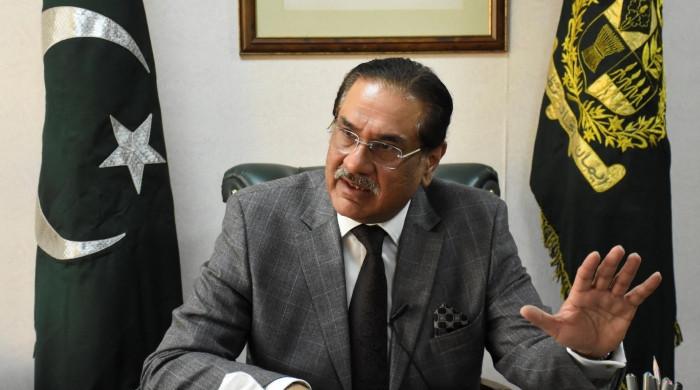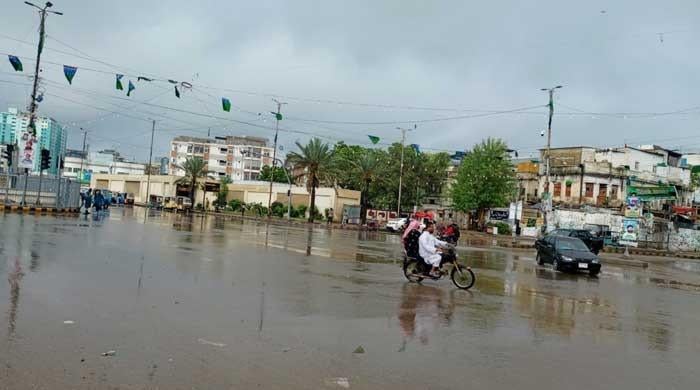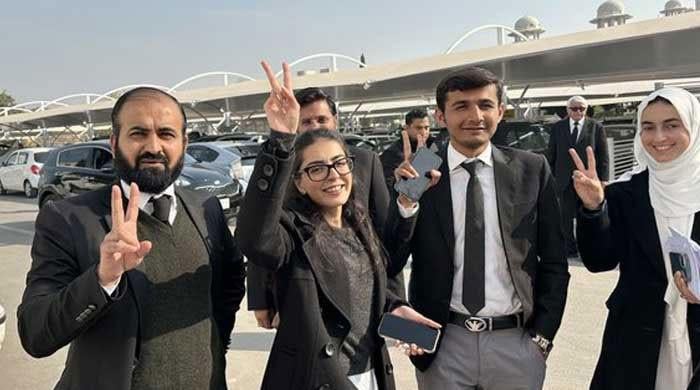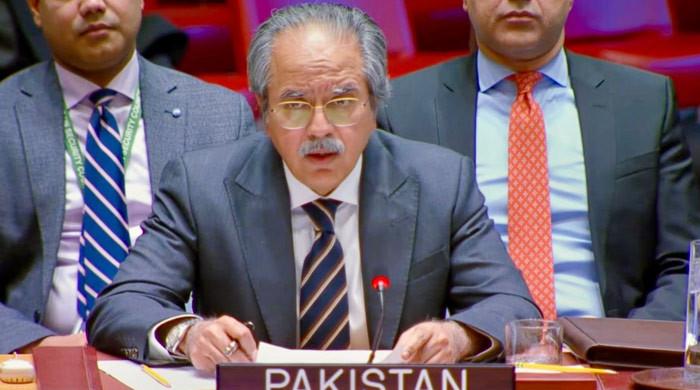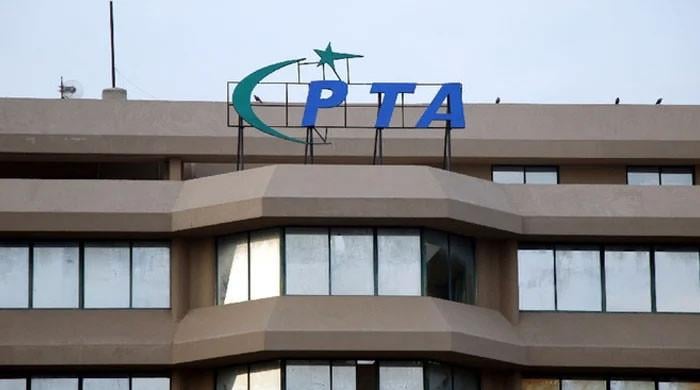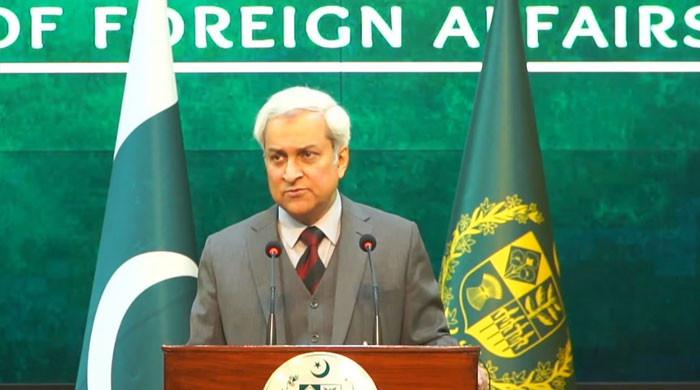Pakistan welcomes Arbitration Court's order saying India to 'let flow' western rivers
Int'l court says India shall “let flow” waters of western rivers for Pakistan’s unrestricted use: Foreign Office
August 11, 2025
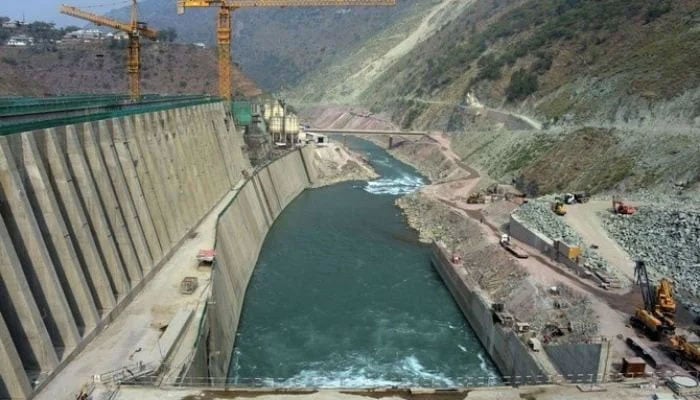
- FO terms PCA award “endorsement” of Pakistan’s stance.
- Says court ruling limits India from maximising pondage volume.
- PCA awards final and binding on parties, observes Hague court.
Pakistan on Monday hailed the award rendered by the Permanent Court of Arbitration on the Issues of general interpretation of the Indus Waters Treaty (IWT).
In a statement, Foreign Office spokesperson Shafqat Ali Khan said that the award interprets the designed criteria for the new run-of-river hydropower projects, to be constructed by India on the western rivers, Chenab, Jhelum, and Indus.
The award was announced on August 8 and publicised on the court’s website, today.
In a significant finding, the court has declared that India shall “let flow” the waters of the western rivers for Pakistan’s unrestricted use, the spokesperson added.
“In that connection, the specified exceptions for generation of hydro-electric plants must conform strictly to the requirements laid down in the treaty, rather than to what India might consider an “ideal” or “best practices” approach,” read the statement.
He maintained that the court’s findings on low-level outlets, gated spillways, intakes for the turbines, and free-board are in line with Pakistan’s interpretation of the relevant provisions of the Treaty.
“The award also limits India from maximising the pondage volume,” the FO spokesperson added.
The Hague court has observed that the awards of a Court of Arbitration are final and binding on the parties — Pakistan and India — and have a controlling legal effect on subsequent Courts of Arbitration and neutral experts.
Recognising Pakistan’s vulnerability as the downstream riparian, the FO spokesperson said that the court further observed that the object and purpose of the IWT, as it relates to the western rivers, is to de-limit the two states’ respective rights and obligations, in conjunction with mutual cooperation and effective dispute resolutions procedures.
He said the award carries special significance in the wake of India’s recent announcement to hold the IWT in abeyance, and its earlier decision to boycott the proceedings of the court.
Following the killing of 26 people in Indian Illegally Occupied Jammu and Kashmir (IIOK) in April, India unilaterally held the IWT with Pakistan in abeyance.
New Delhi accuses Islamabad of orchestrating the deadly militant attack, an allegation that Pakistan denies.
The use of the water is governed by the IWT, which was mediated by the World Bank and signed by the neighbours in September 1960. There is no provision in the treaty for either country to unilaterally suspend or terminate the pact, which has clear dispute resolution systems.
Reacting to the Hague ruling today, FO spokesperson said: “It is an endorsement of Pakistan’s historical stance on the afore-stated issues.”
“Pakistan remains committed to full implementation of the IWT,” he said, adding that Islamabad also expects India to immediately resume the normal functioning of the treaty, and faithfully implement the award announced by the court.




